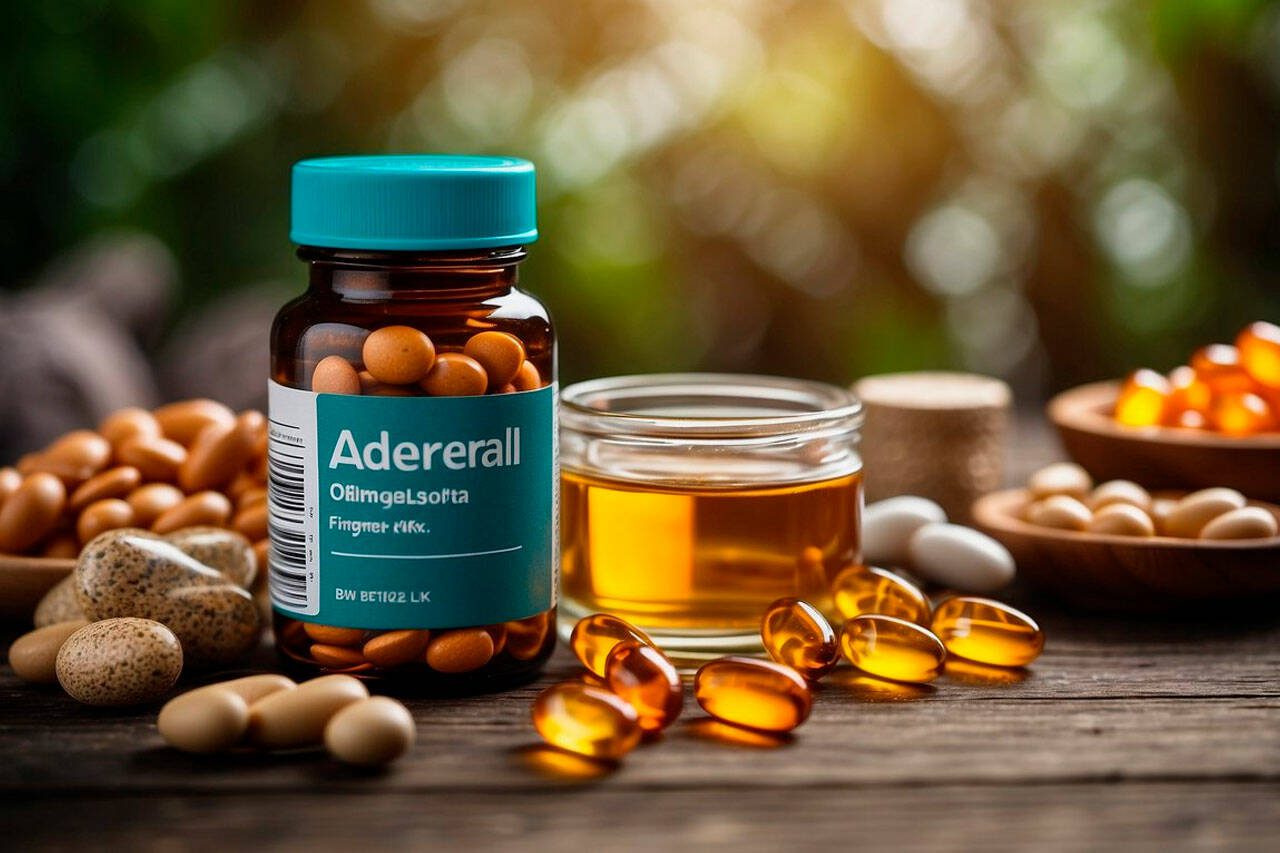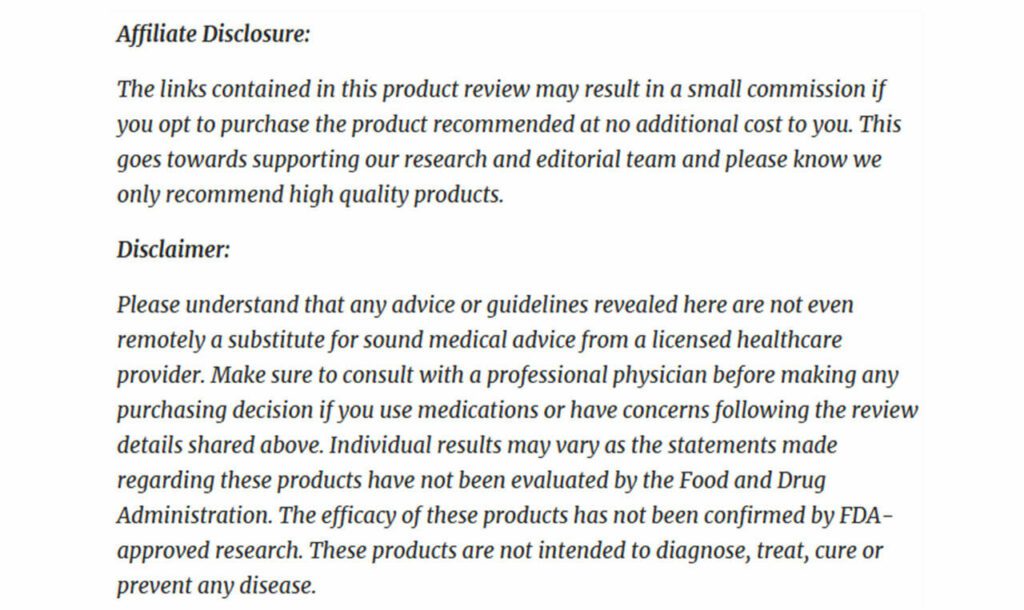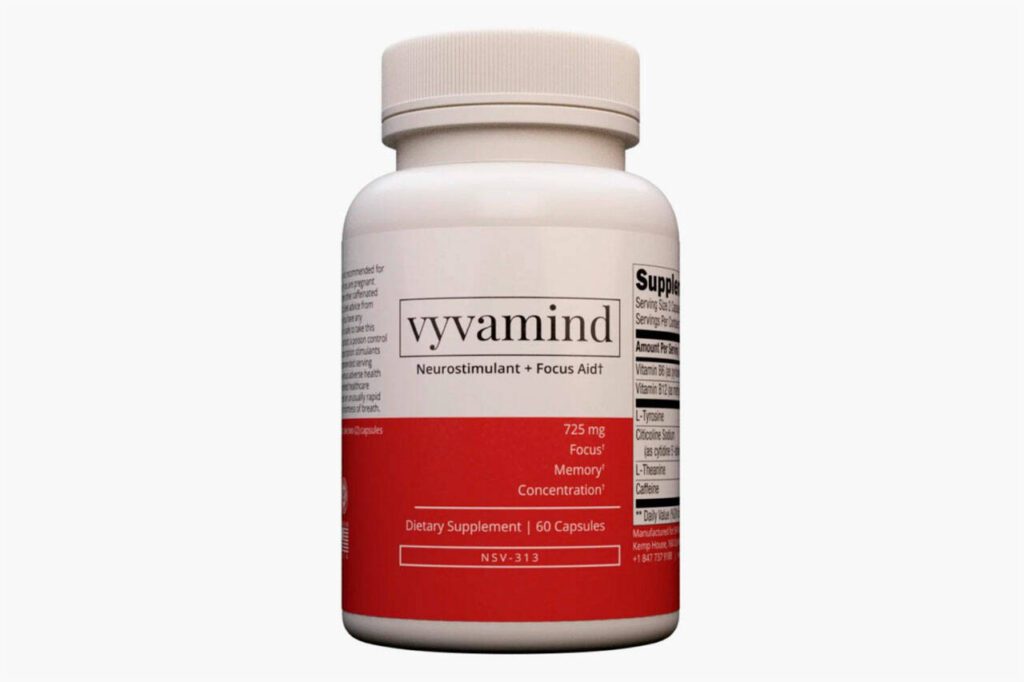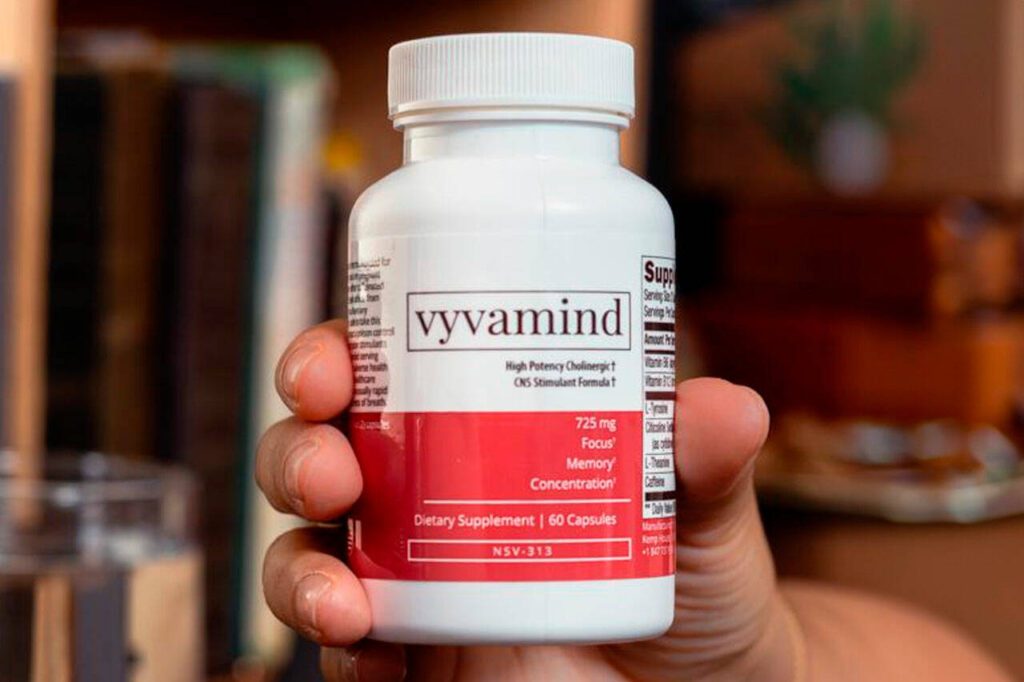Adderall, a prescription medication commonly used to manage Attention Deficit Hyperactivity Disorder (ADHD), is sometimes paired with supplements to enhance its efficacy or alleviate side effects potentially. Individuals taking Adderall may seek to optimize mental performance and explore additional supplementation under the guidance of a healthcare professional.
Selecting the best supplements to take with Adderall involves understanding the synergistic effects of nutrients on the medication and overall brain health. Minerals and vitamins, such as vitamin C and magnesium, play crucial roles in effectively functioning neural pathways and mitigating the potential adverse effects of long-term stimulant use.
Carefully considering and consulting with a medical expert about complementary supplements can lead to a more balanced approach to managing ADHD symptoms and enhancing cognitive functioning. Users must navigate this aspect of treatment with evidence-based information and professional advice to ensure optimal results and maintain health and well-being.
Understanding Adderall and Its Effects
Adderall is a medication predominantly used to treat attention deficit hyperactivity disorder (ADHD). As a central nervous system stimulant, it influences the presence of neurotransmitters like dopamine and norepinephrine in the brain.
Pharmacology of Adderall
Adderall is composed of a mixture of amphetamine salts, including dextroamphetamine and levoamphetamine. Its mechanism primarily involves the increase of dopamine and norepinephrine concentrations in the central nervous system. This action enhances focus and attention in patients with ADHD. However, due to its stimulant nature, Adderall can also affect blood pressure and the autonomic nervous system.
- Fundamental Components: Dextroamphetamine and Levoamphetamine
- Primary Action: Increases levels of dopamine and norepinephrine
- Effect on the body: Can lead to changes in blood pressure and autonomic nervous system regulation
Common Side Effects
The use of Adderall, while therapeutic for many, can lead to several side effects. Some of the most common are nervousness, headaches, difficulty sleeping, and decreased appetite. More severe side effects, though less typical, can include rapid heart rate and increases in blood pressure.
- Nervous System: Nervousness, headache, insomnia
- Digestive System: Decreased appetite, stomachache
- Cardiovascular: Elevated heart rate, heightened blood pressure
The awareness of Adderall’s pharmacology and potential side effects is essential for patients and healthcare providers to ensure its optimal use and management.
Natural Supplements That May Enhance Adderall
When taking Adderall, certain natural supplements might support better brain function and complement the medication’s cognitive-enhancing effects.
Stimulants for Enhanced Alertness and Focus
Stimulants such as caffeine, theacrine, and methylliberine are prevalent for enhancing alertness and cognitive performance, making them valuable supplements to take with Adderall for boosting overall mental energy. Here’s how these stimulants can complement the effects of Adderall:
Caffeine
Well-known for its fast-acting boost in alertness, caffeine also enhances concentration and focus. It works by blocking adenosine receptors in the brain, which helps to ward off fatigue and keeps you alert, thereby strengthening the stimulant effects of Adderall.
Theacrine (TeaCrine®)
Like caffeine but with a slower onset, theacrine provides a longer-lasting stimulant effect without the typical crash associated with caffeine. This makes it ideal for sustaining prolonged periods of focus and synergizing with Adderall’s effects.
Methylliberine (Dynamine®)
A newer stimulant that works similarly to caffeine and theacrine, methylliberine boosts energy and mood without significantly affecting blood pressure or heart rate. It provides a quick, noticeable increase in mental clarity, complementing Adderall’s functionality.
Together, these stimulants can enhance the effectiveness of Adderall, providing additional energy and focus necessary for long and demanding tasks.
Cholinergics for Cognitive Enhancement
ACholinergic such as Citicoline, Alpha-GPC, and Huperzine A are crucial for enhancing cognitive functions by influencing acetylcholine levels in the brain, making them excellent supplements with Adderall to boost its cognitive-enhancing properties. Here’s how these cholinergic’s can complement the effects of Adderall:
Citicoline
Citicoline is a potent brain health booster that aids in synthesizing phosphatidylcholine, an essential phospholipid in the brain. This substance enhances the production of acetylcholine, which is vital for memory and cognitive function. Citicoline can potentially amplify the cognitive benefits of Adderall, improving focus and mental agility.
Alpha-GPC
Like Citicoline, Alpha-GPC increases acetylcholine availability in the brain, essential for cognitive enhancement and learning capabilities. It supports cognitive function and improves mental performance, making it a supportive supplement for enhancing the effects of Adderall.
Huperzine A
Although not a direct cholinergic, Huperzine A acts as an acetylcholinesterase inhibitor, preventing acetylcholine breakdown. This increases acetylcholine levels, enhancing memory, focus, and analytical capabilities. By maintaining higher acetylcholine levels, Huperzine A can improve and prolong the cognitive effects of Adderall.
These supplements help maintain and enhance cognitive functions by boosting acetylcholine levels. These synergize well with Adderall’s therapeutic actions, making them valuable for anyone seeking to maximize cognitive performance and focus.
Amino Acids and Proteins
Amino acids, particularly precursors to neurotransmitters, play a vital role in combination with Adderall. These amino acids help augment the medication’s effects by supporting and enhancing neurotransmitter synthesis. Here’s a breakdown of critical amino acids beneficial to take alongside Adderall:
Tyrosine
As a critical precursor to dopamine, norepinephrine, and epinephrine, Tyrosine is fundamental in replenishing neurotransmitters depleted by Adderall’s stimulatory action. This support helps sustain the medication’s effectiveness, particularly in enhancing focus and alertness.
Theanine
Known for its calming effects, Theanine can modulate Adderall’s sometimes intense stimulant effects by promoting relaxation without sedation. It helps balance the neurotransmitters and has a synergistic effect with Adderall, reducing anxiety and jitteriness.
Taurine
Often used in energy drinks, Taurine works as a mild sedative and antioxidant. It supports brain function by stabilizing cell membranes and aiding the movement of potassium, sodium, calcium, and magnesium in and out of cells. Taurine can help mitigate some of the harsher side effects of Adderall, such as overstimulation and restlessness.
Incorporating these amino acids into your regimen with Adderall can provide a balanced approach to managing ADHD symptoms and enhancing cognitive function.
Minerals Essential for Brain Function
Minerals such as magnesium, zinc, and iron are crucial in supporting healthy brain function and are vital supplements for Adderall. These minerals enhance the efficacy of Adderall by optimizing neurotransmitter synthesis and activity, thus playing a crucial role in cognitive enhancement. Here’s a closer look at each mineral and its specific benefits when used in conjunction with Adderall:
Magnesium
This mineral is involved in over 300 biochemical reactions in the body, many of which influence brain function. Magnesium aids in calming the nervous system and can help mitigate the side effects of stimulants like Adderall, such as nervousness or insomnia. By stabilizing neural membranes, magnesium also supports the brain’s response to Adderall.
Zinc
Essential for neurotransmitter function, zinc influences how the brain and body respond to stress. It plays a significant role in modulating brain activity and can help maintain normal dopamine levels, which is critical for the cognitive enhancements provided by Adderall.
Iron
Iron is a crucial component of dopamine synthesis. Adequate iron levels ensure the proper functioning of neurotransmitters, which is essential for Adderall’s focus-enhancing effects. Low iron levels can lead to diminished efficacy and affect overall cognitive performance.
Incorporating these minerals into your diet or as supplements can optimize the cognitive benefits of Adderall, helping to ensure better mental performance and minimizing potential side effects.
Vitamins Supporting Cognitive Health
Vitamins are crucial in maintaining cognitive health and are beneficial supplements for Adderall. They support nerve function and aid in the production and regulation of neurotransmitters, enhancing the effects of Adderall on brain function. Here’s a breakdown of essential vitamins that support cognitive health when taking Adderall:
Vitamin B6
This vitamin is pivotal for neurotransmitter synthesis, including serotonin, dopamine, and norepinephrine, all of which affect mood and cognitive function. Vitamin B6 helps optimize the brain’s response to Adderall, improving its efficacy in managing ADHD symptoms.
Vitamin B12
Essential for nerve health and cognitive functioning, Vitamin B12 plays a crucial role in forming red blood cells and DNA. It supports brain health by maintaining nerve integrity, which is vital for enhancing the stimulant effects of Adderall.
Vitamin C
As a potent antioxidant, Vitamin C also modulates neurotransmitters such as dopamine. It assists in the overall function of Adderall by supporting brain health and protecting against oxidative stress, which can be exacerbated by stimulant use.
Vitamin D
Often linked with mood regulation and cognitive function, Vitamin D deficiency has been associated with an increased risk of cognitive deficits. Supplementing with Vitamin D while taking Adderall can support mood stabilization and cognitive enhancements facilitated by adequate neurotransmitter function.
Incorporating these vitamins either through diet or supplements can significantly enhance the cognitive benefits of Adderall, ensuring better mental performance and overall brain health.
Fatty Acids for Brain Health
Omega-3 fatty acids are essential for optimal brain health and are beneficial supplements to take with Adderall. These fatty acids, particularly DHA (docosahexaenoic acid), play a critical role in maintaining the integrity of neuronal membranes, which is vital for cognitive processes. Here’s how omega-3 fatty acids can synergize with Adderall’s therapeutic actions:
DHA
As a primary structural component of the brain, DHA supports cognitive functions by enhancing the fluidity and functioning of cell membranes. This structural support helps optimize the brain’s response to Adderall, potentially improving its effectiveness in treating ADHD symptoms.
Incorporating omega-3 fatty acids into your regimen can enhance the cognitive benefits of Adderall, supporting brain health and contributing to improved therapeutic outcomes.
Vyvamind: The Optimal Supplement to Complement Adderall
- Vyvamind
For individuals seeking to maximize the benefits of Adderall while minimizing potential side effects, Vyvamind emerges as an exceptional supplemental choice. Vyvamind’s carefully selected ingredients not only enhance the effects of Adderall but also provide a buffer against its less desirable impacts.
Critical components of Vyvamind, such as Citicoline and Tyrosine, are known to potentiate the effects of Adderall. Citicoline increases levels of acetylcholine, a neurotransmitter pivotal for cognitive functions, which synergizes with Adderall’s action on enhancing attention and focus. Similarly, Tyrosine supports the production of dopamine, which can be depleted with regular Adderall use, thus maintaining optimal neurotransmitter levels for improved mental performance.
Moreover, Vyvamind includes Caffeine and Vitamin B6, further boosting mental alertness and energy, complementing Adderall’s stimulant properties. On the other hand, Theanine serves an essential role in mitigating the side effects of Adderall. Known for its calming effects, Theanine helps smooth out the jitters and anxiety that can accompany stimulant use, promoting a more balanced and sustained focus.
Together, these ingredients make Vyvamind an ideal supplement for Adderall users. It enhances Adderall’s cognitive benefits while ensuring a smoother experience with fewer side effects.
You Can Buy Vyvamind Now From The Official Website Without A Prescription – Click This Link To See Prices.
Dietary Considerations and Lifestyle Choices
When taking Adderall, individuals should be mindful of specific dietary choices and lifestyle habits that can affect the drug’s efficacy. Strategies for optimizing nutrition and incorporating exercise can significantly enhance focus and concentration.
Optimizing Nutrition
Proper nutrition is critical for maintaining health and enhancing the therapeutic effects of Adderall. Individuals should ensure their diet includes a balance of:
- Proteins: Essential for neurotransmitter function
- Complex Carbohydrates: Stabilize blood sugar, providing sustained energy
Carbohydrates from sources like whole grains facilitate a steady release of glucose, which fuels brain function and improves attention and alertness.
Consultation with a healthcare provider is advisable to tailor dietary intake that complements medication.
Impact of Exercise on Effectiveness
Exercise plays a role in boosting the effectiveness of Adderall by:
- Improving overall health
- It potentially enhances focus and concentration through increased blood flow to the brain.
- Regular exercise can help manage symptoms of attention-deficit/hyperactivity disorder (ADHD), thereby potentially improving productivity and the medication’s benefit.
Tailoring an exercise regimen with a healthcare professional’s advice can optimize Adderall’s therapeutic potential.
Potential Risks and Interactions
When taking Adderall, knowing how it may interact with various supplements is essential. Some supplements might amplify side effects such as insomnia or loss of appetite, while others may contribute to more severe issues like increased heart rate or blood pressure.
Understanding Drug-Nutrient Interactions
Adderall is a medication that can interact with certain supplements. Known primarily for its use in treating ADHD and narcolepsy, the drug can cause side effects such as nausea, vomiting, loss of appetite, diarrhea, headache, dizziness, and weight loss. The interaction of natural supplements with Adderall can either potentiate these effects or, in some cases, mitigate them. It is critical to understand these interactions to avoid adverse reactions.
Some interactions to be aware of:
- Vitamin C: This can reduce the effectiveness of Adderall due to increased acidity in the urine.
- Alkaline agents: Sodium bicarbonate can increase the absorption of Adderall.
- Caffeine: Can exacerbate side effects like insomnia and dizziness.
Supplements to Use With Caution
Certain natural supplements should be used with caution when taking Adderall due to their potential to cause interactions:
- St. John’s Wort: May increase the metabolism of Adderall, decreasing its effectiveness.
- 5-HTP: This can lead to serotonin syndrome when combined with stimulant medications like Adderall.
- Melatonin: Although used for sleep, combining melatonin with Adderall may cause an imbalance due to the medication’s stimulating effects.
People prescribed Adderall must consult healthcare providers before introducing or continuing any supplement to understand potential interactions. A healthcare professional can also guide managing side effects and weigh the benefits versus risks of concurrent supplement use.
Alternative Approaches and Complementary Therapies
While Adderall is a widely used medication for the treatment of ADHD, individuals often seek complementary therapies to enhance treatment efficacy and manage symptoms. These therapies include natural alternatives and mindfulness techniques, which can offer additional support without necessarily relying solely on pharmaceutical interventions.
Herbs and Natural Alternatives
Natural supplements can serve as adjuncts to conventional ADHD medications like Adderall, Ritalin, Concerta, Vyvanse, and methylphenidate. Certain supplements have been studied for their potential to support brain health and improve symptoms associated with attention deficit disorders:
- Ashwagandha: Thought to possess anti-anxiety and calming properties, Ashwagandha may help to reduce stress and anxiety, which can be beneficial for individuals with ADHD.
- Ginkgo Biloba: Ginkgo has been suggested to have cognitive-enhancing effects and may improve attention span and memory.
- L-Theanine: Commonly found in green tea, L-Theanine may promote a sense of calm and improve focus without sedation.
- Citicoline: This supplement may support brain health and cognitive function, potentially improving memory and attention in individuals with ADHD.
- Omega-3 Fatty Acids: Omega-3s have anti-inflammatory properties and have been linked to improvements in mood, impulsivity, and hyperactivity in some studies.
Individuals need to consult with healthcare professionals before integrating these natural alternatives into their treatment plan to ensure they are appropriate and safe to use alongside stimulant medications.
Mindfulness and Stress Reduction Techniques
Mindfulness and stress management techniques can be powerful tools for individuals with ADHD to cultivate a greater sense of calm and self-regulation:
- Mindfulness Meditation: Regular practice can enhance one’s ability to remain present and attentive, thereby potentially improving symptoms like inattention and impulsivity.
- Yoga and Tai Chi: These physical disciplines incorporate mindful movement and have been shown to improve symptoms of ADHD, such as hyperactivity and anxiety.
By integrating mindfulness practices into their daily routine, individuals with ADHD might experience improvements in mood, reduce anxiety and depression symptoms, and enhance their overall well-being.
Discussing Supplement Use with a Healthcare Provider
Before individuals start combining supplements with Adderall or any ADHD medications, consultation with a healthcare provider is critical. Adderall, a prescription medication used to treat attention deficit hyperactivity disorder (ADHD), can interact with various supplements and over-the-counter products.
Critical Considerations to Discuss:
- Potential Interactions: They should understand potential interactions between Adderall and various supplements, including adverse side effects and possible benefits.
- Personal Health Profile: Every individual’s health is unique. Healthcare providers can offer tailored advice based on personal medical history and the specific formulation of ADHD medication prescribed.
Steps to Prepare for the Discussion:
- List Current Medications: Individuals should compile a comprehensive list of all current medications, including other prescriptions, over-the-counter drugs, and existing supplements.
- Research: Research to be informed about the supplements they are considering.
- Specific Concerns: They should identify any particular concerns or objectives regarding supplement use.
During the Appointment:
- Be Honest: Individuals must be open and honest about all substance use.
- Ask Questions: Encourage them to ask questions to understand the reasons behind the healthcare provider’s recommendations.
- Note Recommendations: They should take notes on any suggested supplements or dietary changes and why they may be beneficial in conjunction with their ADHD medication.
By taking these steps, individuals looking to use supplements alongside Adderall can help ensure they’re doing so safely and effectively under the guidance of a healthcare professional.
Adderall Potentiation: Should You Enhance the Effects of Adderall?
Potentiating Adderall, or making it work better and more powerfully, can be very risky given its solid pharmacological profile as a potent stimulant. It is crucial to understand that enhancing the effects of such a powerful drug should only be undertaken under strict medical supervision. Adderall already significantly affects neurotransmitter levels in the brain, and increasing its potency could lead to severe side effects or health complications.
Using certain nootropic supplements in combination with Adderall can indeed make it stronger or enhance its cognitive benefits. For example, Citicoline can boost brain function and increase the effectiveness of Adderall by enhancing acetylcholine production. At the same time, Tyrosine may support dopamine levels, thus extending the drug’s efficacy in promoting focus and alertness. Caffeine, too, can amplify the stimulant effects, providing an additional boost in alertness and concentration.
Conversely, some supplements like Theanine are not used to enhance the stimulant effects but rather to mitigate side effects such as jitteriness or insomnia associated with Adderall. Theanine promotes relaxation and can help balance the stimulatory impact of Adderall, making it more tolerable without intensifying its action.
So, while certain nootropics can be used to make Adderall work better or to control its side effects, this should be approached with caution and always under professional guidance to avoid potentially dangerous health risks.
Why Vyvamind is the Ideal Adderall Supplement Stack
Vyvamind stands out as an ideal supplement stack for those using Adderall due to its well-balanced blend of nootropics that enhance cognitive functions and mitigate potential side effects of stimulant medications.
Designed to complement and enhance the effects of Adderall, Vyvamind incorporates several vital ingredients that support sustained mental performance and overall brain health.
Key benefits of Vyvamind include:
- Enhanced Cognitive Clarity: Boosts mental clarity and focus, making it easier to engage in complex tasks.
- Increased Mental Energy: Provides a steady supply of energy that helps maintain productivity throughout the day without crashes.
- Neuroprotective Effects: Ingredients that support neuronal health and protect against oxidative stress
- Balanced Mood: Helps stabilize mood swings potentially induced by Adderall use.
Vyvamind is an excellent choice for anyone looking to maximize the benefits of Adderall while minimizing side effects. It ensures a smoother and more adequate cognitive enhancement experience.




























